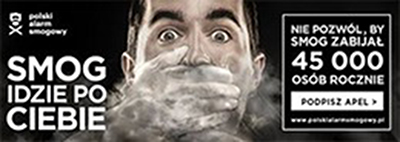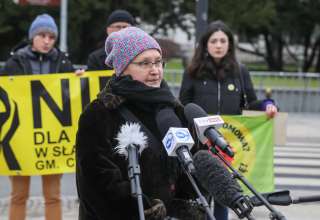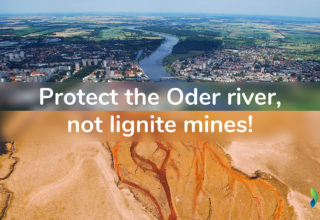
Both the reports of the Regional Inspectorate for Environmental Protection and Air Protection Program for the Lower Sielsian Province, clearly identify low emissions (emissions from local boiler houses and stoves, mostly detached houses and townhouses) as the main source of these pollutants.
Over 95% of benzo[a]pyrene impurities and approximately 70% of particulate matter comes from local furnaces where coal is burned, but often from old rubbish – old furniture, plastic, tires.
In Wroclaw there is also a fairly well-established district heating network (connected to about 60% of the population). The city also has a gas network – there is, therefore, a vital alternative energy source that can be used in place of solid fuels. In 2012, it was found that the daily standards for PM10 were exceeded in Wroclaw on 71 and 68 days (two stations), while the level allowed by EU regulations is 35 days a year. The situation in other cities in Lower Silesia is also not good. In 2012, Nowa Ruda daily standards were exceeded for 112 days, in Jelenia Gora – Teplice by 86, in Legnica by 77, and in Szczawno-Zdroj by 70.
An even greater problem occurs in the case of benzo[a]pyrene (B [a] P). The average annual concentration limit by the Union of cancer gene is 1 ng / m3. In 2012, the average annual Wroclaw B [a] P reached 430% of normal levels, in Nowa Ruda 1,360%, 950% in Zgorzelec, in Szczawno Zdroj 700%, and 650% in Legnica.
Knowledge about the problem
Public awareness of the immense problem of low emissions is small, much smaller than in Krakow, which has successfully taken on air pollution. Lower Silesia smog alert (DAS) is an apolitical citizens’ initiative, which aims to encourage politicians to take action that will lead to the improvement of air quality in Wroclaw and other towns in Lower Silesia.
Actions for Wroclaw
The city began a furnace exchange program KAWKA, sponsored the National Fund for Environmental Protection and Water Management. 20 million zloty have already been allotted for the program. However, this would not be a big improvement, because the activities are highly fragmented and cover only 1 thousand coal stoves, while it is necessary by the City Council to reach 40-50 thousand stoves.
Who are we?
The organization was founded on the initiative of citizens with the support of Wroclaw social organizations. In ECOCENTRE in Wroclaw on June 9, 2014 the organization held a meeting in regards to the initiative for clean air in Lower Silesia. Residents, representatives of non-governmental organizations, science, business and energy experts took part in the concer
A few months later, in a meeting held on October 7, 2014, the initiative adopted the name: Lower Silesia smog alert: The initiative for clean air. It was also decided that the initiative has registered as an association and will seek funds to support an information campaign for clean air in Lower Silesia.
Appeal to Minister of Health on the WHO to support a resolution on the impact of air pollution on health
Later this month the World Health Assembly is scheduled to adopt the first ever resolution of the World Health Organization (WHO) on air pollution and its impact on human health. Adoption of the resolution will be a milestone in the fight for clean air and an additional tool for our work on better air quality at the national and European level. We appeal to the Minister of Health Mr Bartosz Arlukowicz for the support of the objectives of resolution and its binding subscriptions for all countries.
Negotiations are continuing on in Geneva at the World Health Assembly (WHA). Director of HEAL, Genon K. Jensen will participate in the WHA as part of a delegation of the World Medical Association, calling for the development of solutions that will allow for a significant reduction in air pollution and improving public health in Europe and the rest of the world.
In connection with the negotiation, we call for Minister Arlukowicz to support and strengthen drafted resolution, with particular emphasis on:
- establishing specific commitments (rather than voluntary declaration) of all countries to act to improve the health of their citizens;
- a well-functioning international system of evaluation and supervision mechanism, taking into account the specific indicators and targets according to the recommendation of the WHO Secretariat;
- greater emphasis on the need to implement low-carbon economy and the elimination of coal, which largely contributes to the formation of air pollution;
- recognition of the activities of non-governmental organizations as one of the key measures to improving air quality.
The whole list can be found here.
More information on the World Health Assembly can be found at the WHO’s website.
Poster advertising the anti-smog action in Wrocław.





